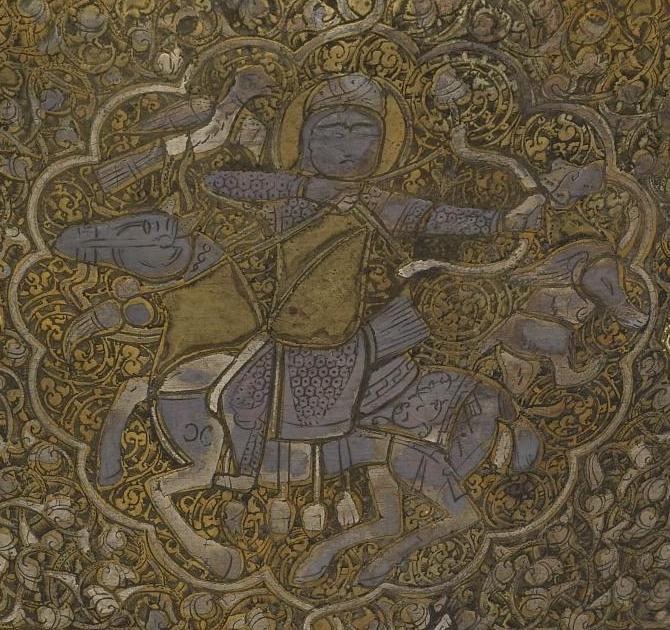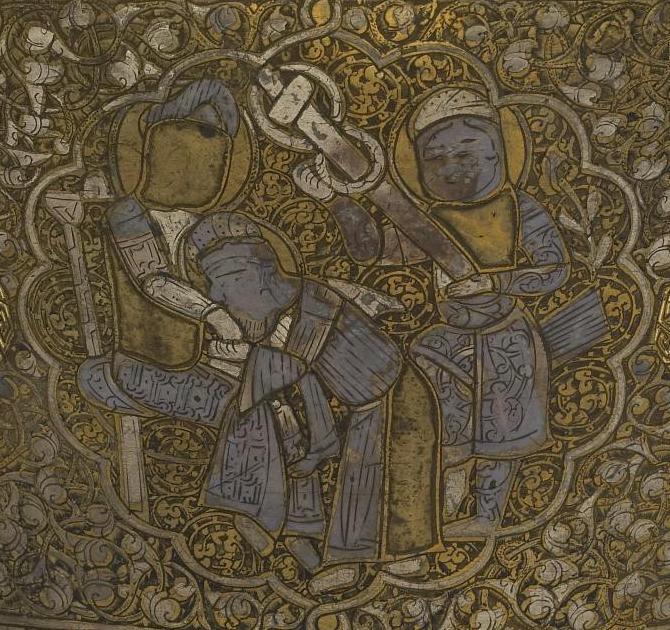Ayyubids on a Ewer, Jazirah, 1246-1247








Artist: Yunus ibn Yusuf, "al-naqqash al-Mawsili"
Year: 1246-1247 (AH 644)
Material: brass with silver inlay
Accession Number: 54.456
Dimensions: 44.5 x 31.8 x 16.5 cm
Origin: Mosul, Iraq (?)
In a notable artistic innovation, medieval Islamic artisans used precious metals- gold, silver, and copper- to decorate bronze and brass objects. The richly decorated surface of this ewer features multiple bands of Arabic inscriptions and scalloped medallions enclosing musicians, enthroned figures, hunters, and other scenes characteristic of medieval Islamic art. The presence of the artist's signature here is noteworthy since the medieval Islamic artisan generally remained anonymous. Yunus ibn Yusuf styles himself al-naqqash, or decorator, probably signifying that he was responsible for executing the inlaid designs. He also ends his name al-Mawsili, meaning "from Mosul," a famous metalworking center in northern Iraq. However, Yunus ibn Yusuf could just as easily have been working in Syria, where metal workshops produced similar inlaid vessels during the 13th century.
Source: The Walters
Referenced as figure 307 in The military technology of classical Islam by D Nicolle

307. Inlaid metal ewer by Yūsuf al Mawsilī 1246-47 AD, Jazīrah, Walters Art Gallery no. 54.456, Baltimore.
pp453-4: Oddly enough there seem to be more illustrations of mamluk horse-archers from the later Ayyubid eras, in the 13th century, than from the days of Salah ad Din himself. Their equipment would appear to have been fairly standardized, with a minority wearing heavy armour and riding horses possibly with bards and chanfrons (Figs. 129, 291, 300, 304, 307, 308 and 651).
See also:
Ayyubid Horse Archer on a Pilgrim Bottle (zamzamiyyah) Fragment, 12th-13th Century
Other 13th Century Illustrations of Costume & Soldiers
Seljuk Illustrations of Costume and Soldiers















